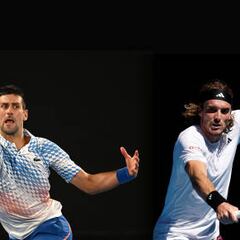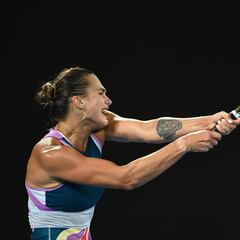Why didn’t Novak Djokovic play in the Australian Open last year?
The 2023 Australian Open sees Novak Djokovic meet Stefanos Tsitsipas in the Men’s Singles Final, a far cry from the disruption of last year


Novak Djokovic is one Grand Slam win away from tying Rafa Nadal’s mark of 22 titles. The media has been cagey with him of late, particularly as it pertained to his father seeming to cozy up to some pro-Putin protesters in Melbourne, but the public seems largely keen to move beyond politics and focus on tennis.
Visa trouble in 2022
Last year, Djokovic came into the Australian Open as the world number one, widely expected to win the title and stake his claim to the being greatest Grand Slam champion ever.
But in the wake of the worldwide coronavirus pandemic, Australia’s notoriously stiff entry requirements got tighter still and at a time when many normal tourists were unable to enter the country without a state-required quarantine, entry visas required a covid vaccination or medical exemption.
Djokovic missed last year’s Australian Open and was deported from the country due to being unvaccinated against COVID.https://t.co/PO0yHb050f
— CNN International (@cnni) January 24, 2023
Having never received any covid vaccine, Djokovic claimed an exemption based on having tested positive in the previous December. Upon arrival in Australia, the Border Force decided that he did not in fact meet the requirements for an exemption and held him pending deportation.
After two appeals were exhausted, and much bad press, Djokovic had his visa revoked and was deported from Australia.
The Australian government no longer has a vaccination requirement for entry.
Deportation automatically carries a three-year ban on re-entry, but the Australian government decided to overturn that ban for the Serbian tennis legend this past November, allowing him to enter the country for this year’s tournament.
Return of tennis’ prodigal son
There was little evidence of rancor or lingering ill will toward Djokovic on display by the Melbourne public, who seem eager to put the whole debacle behind them. His arrival in Adelaide saw vocal support from the 15,000-strong crowd who snapped up tickets to see him play Nick Kyrgios.
“I was very emotional, honestly, coming into the court with the reception that I received,” Djokovic said later. “I didn’t know how that’s going to go after the events of last year. I’m very grateful for the kind of energy and reception, love and support I got.”
— Novak Djokovic (@DjokerNole) January 19, 2023
Not everyone is as eager to let bygones be bygones, and Djokovic remains a divisive figure, with 41% of respondents in a national poll saying that he should not be allowed to stay in the country and play in the Australian Open. 30% reported strong support for Djokovic and 29% had no strong opinion on the matter.
Related stories
“I understand that it was a frustrating period for a lot of people around the world, particularly here in Australia for two years,” says Novak. “So I understand that when media writes in a certain way about a guy who tried to go in without a vaccine that people would say, ‘Wait, wait a second. Why is he allowed to come in when many people aren’t able or allowed to come from wherever they are around the world to their own country?’ So I understand why they were frustrated, but again I have to say that the media presented in a completely wrong way.”
Insisting that he followed the rules and that he still believes that he was in possession of “valid papers,” Djokovic is as keen as anyone to move away from the political and simply focus on the tennis.

